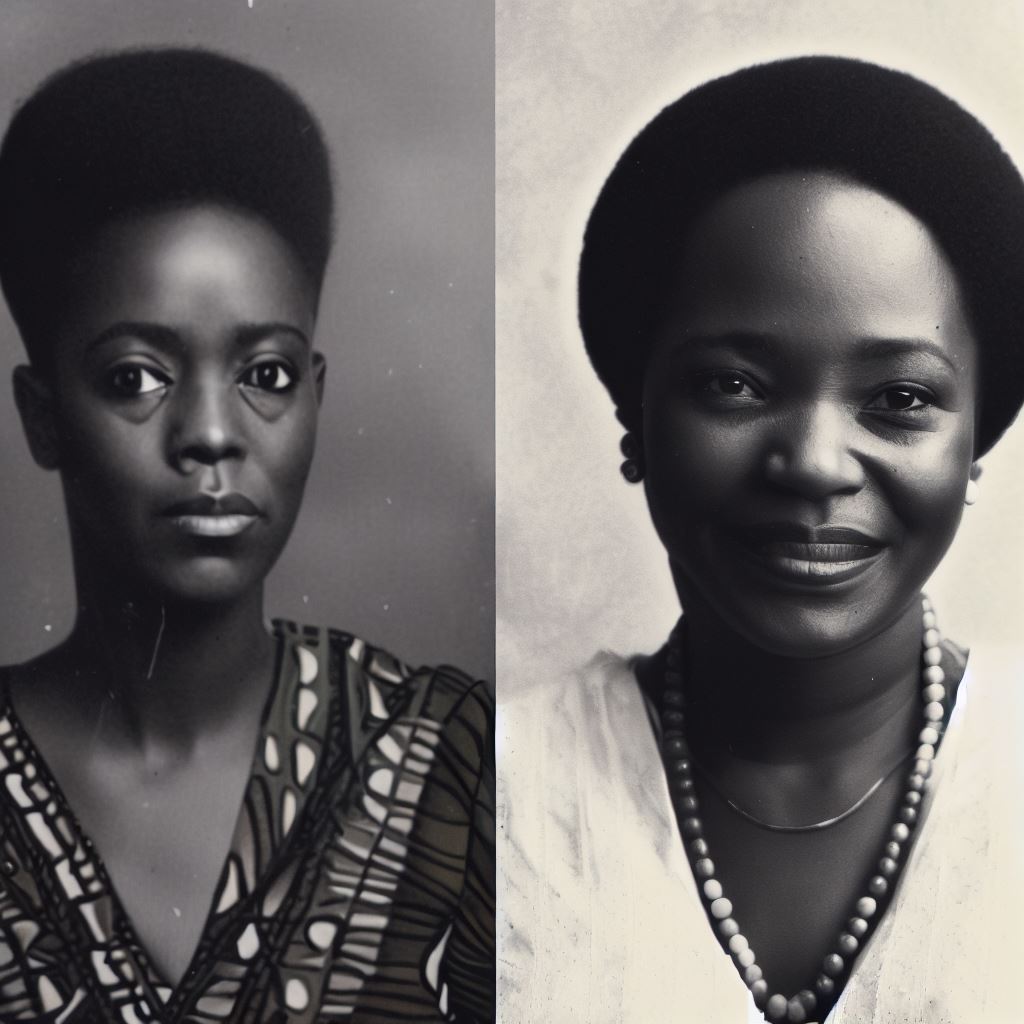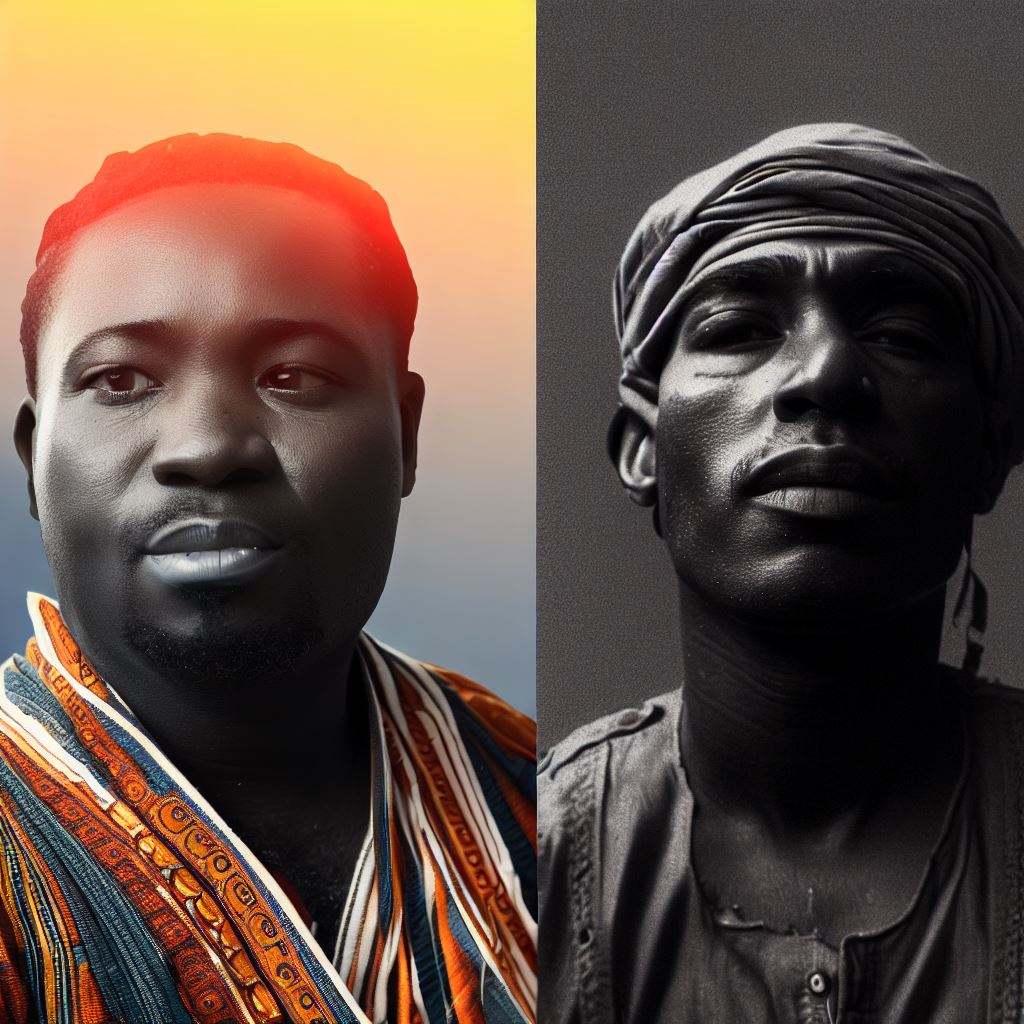Introduction
Let’s explore the role of technology in composing Nigerian film.
The Nigerian film industry, also known as Nollywood, has experienced a significant rise in recent years.
Technology has played a pivotal role in revolutionizing the way films are composed in Nigeria.
In the dynamic world of cinema, technology stands as an ever-evolving force, reshaping the landscape of storytelling and artistic expression.
Nowhere is this transformation more palpable than in the realm of Nigerian film composing.
As the heartbeat of any cinematic creation, the role of composers extends far beyond mere music; they are the architects of emotion, the maestros of atmosphere, and the catalysts for narrative immersion.
This exposition embarks on a profound exploration of how technology, with its inexorable march forward, has not only revolutionized the art of film composition but also elevated Nigerian cinema onto a global stage.
Through the lenses of innovation and creativity, we unravel the intricate dance between tradition and progress, shedding light on the extraordinary fusion of cultural heritage and cutting-edge tools that define the modern narrative in Nigerian filmmaking.
Join us in this captivating journey through the harmonious synergy of technology and artistry, as we unveil the pivotal role it plays in the evocative world of Nigerian film composing.
This blog post aims to explore the impact of technology on film composing in Nigeria and its implications.
Overview of Nigerian Film Composing
A. Traditional Methods of Film Composing in Nigeria
Early Nigerian film composers relied on traditional African music elements.
Handcrafted instruments like the shekere, talking drum, and kalimba were commonly used.
The composers combined traditional instruments with vocals, chants, and percussions.
They often composed music during the filming process, creating an organic and immersive experience.
B. Challenges Faced by Composers in the Past
- Limited access to modern musical instruments and recording equipment hindered creativity.
- Composers had to work with small budgets, compromising on production quality.
- Maintaining synchronization between the film and music was a major challenge.
- The lack of appreciation and recognition for composers affected their motivation and career prospects.
C. Importance of Music in Nigerian Films
Music is an integral part of Nigerian films, amplifying emotions and enhancing storytelling.
It helps create a unique cultural identity and adds authenticity to the narratives.
Nigerian filmmakers recognize the power of music in attracting audiences and creating memorable experiences.
Through carefully composed soundtracks, music is used to elevate the overall cinematic experience.
Nigerian film composers have evolved with the advancements in technology, broadening their creative possibilities.
They now have access to high-quality recording equipment, digital sound libraries, and virtual instruments.
These technological advancements have revolutionized the way music is composed for Nigerian films.
Composers can now experiment with various genres, blending traditional and contemporary sounds seamlessly.
The introduction of digital audio workstations (DAWs) has made the composing process more efficient and flexible.
Composers can easily manipulate and edit music, ensuring perfect synchronization with the visuals.
They can also collaborate remotely with filmmakers and other musicians, regardless of their location.
Technology has also provided composers with a global platform to showcase their talent.
Streaming services and social media platforms allow their work to reach a vast audience.
Moreover, technology has enabled composers to create unique and customized soundtracks.
They can now create personalized soundscapes for different scenes, enhancing the overall cinematic experience.
In short, Nigerian film composers have significantly benefited from technology’s role in their craft.
From the traditional methods of composing to embracing modern tools, the journey has been transformative.
Through technology, composers can now overcome past challenges and explore new artistic possibilities.
The importance of music in Nigerian films remains undeniable, and technology has elevated its impact.
As technology continues to advance, Nigerian film composing will undoubtedly reach new heights of creativity and innovation.
Read: Nigerian Film Composers: Challenges and Triumphs
Technological Advancements and Opportunities
A. Impact of Digital Audio Workstations (DAWs) in Film Composing
Digital audio workstations (DAWs) have revolutionized the film composing process.
Composers now have access to a wide variety of powerful tools and features.
DAWs allow composers to compose, record, edit, and mix music digitally.
With DAWs, composers can easily manipulate audio files and create complex arrangements.
The ease of use and flexibility of DAWs have increased productivity and creativity.
B. Role of Virtual Instruments and Sample Libraries
Virtual instruments and sample libraries have become essential for film composers.
Composers can now recreate the sounds of traditional instruments using virtual instruments.
Sample libraries provide composers with a wide range of realistic and high-quality sounds.
These tools allow composers to experiment with different instrumentations and textures.
Virtual instruments and sample libraries have expanded the possibilities for film composers.
C. Benefits of Computer-Generated Music and Sound Design
- Computer-generated music and sound design offer numerous benefits in film composing.
- Composers can easily create and control complex musical arrangements using computer software.
- Computer-generated music can be tailored to match the mood, pace, and style of a film.
- Sound design can be enhanced with the use of digital effects and processing.
- Computer-generated music and sound design provide a cost-effective solution for film composers.
D. Availability of Online Resources and Tutorials for Composers
The internet has provided composers with a wealth of online resources and tutorials.
Composers can learn new techniques and improve their skills through online platforms.
Online communities allow composers to connect and collaborate with others in the industry.
Tutorials and forums provide composers with guidance and support in their creative process.
The availability of online resources has democratized access to knowledge and opportunities for composers.
In fact, technological advancements have significantly impacted Nigerian film composing.
Digital audio workstations, virtual instruments, and sample libraries have given composers more tools and creative possibilities.
Computer-generated music and sound design offer convenience and flexibility.
Online resources and tutorials have made learning and collaboration easier than ever before.
As technology continues to evolve, the role of technology in Nigerian film composing will only grow and enhance the industry.
Read: The Evolution of Sound Effects Editing in Nigeria
Examples of Technology in Nigerian Film Composing
A. The use of MIDI controllers and hardware synthesizers
In the realm of Nigerian film composing, technology has played a vital role in shaping the soundscapes that accompany these movies.
One prominent example of technology in this field is the use of MIDI controllers and hardware synthesizers.
MIDI controllers are electronic musical instruments that allow composers to control various aspects of sound production, such as pitch, duration, and volume.
These controllers enable composers to mimic and manipulate a wide range of instruments, from traditional Nigerian drums to Western orchestral instruments.
Hardware synthesizers, on the other hand, are electronic devices that generate and modify sound waves to produce a wide array of tones and textures.
Composers can use these synthesizers to create unique sounds and musical motifs that enhance the emotional impact of the films.
The use of MIDI controllers and hardware synthesizers in Nigerian film composing has revolutionized the industry by providing composers with a vast sonic palette to work with.
This technology allows them to experiment with sounds that were previously inaccessible, resulting in more immersive and dynamic film soundtracks.
B. Integration of mobile applications in composing
In addition to MIDI controllers and hardware synthesizers, mobile applications have also become an integral part of Nigerian film composing.
These applications offer composers a convenient and portable way to compose music on the go.
One popular mobile application used by Nigerian film composers is GarageBand.
This app provides a wide range of virtual instruments and a user-friendly interface that allows composers to create and edit music directly on their mobile devices.
With GarageBand, composers can experiment with different melodies, harmonies, and rhythms, making the composing process more fluid and flexible.
Another noteworthy mobile app in Nigerian film composing is FL Studio Mobile.
This app offers a comprehensive set of features, including a sequencer, synthesizers, and drum kits.
Composers can easily create intricate musical arrangements and mix their compositions on their smartphones or tablets.
The integration of mobile applications in Nigerian film composing has made it easier for composers to work on their music anytime and anywhere.
This convenience has contributed to the efficiency and productivity of film composers, resulting in a higher quality of music in Nigerian films.
C. Provide examples of successful film soundtracks composed using technology
The use of technology in Nigerian film composing has produced remarkable soundtracks that have captivated audiences worldwide.
Several Nigerian films have achieved great success with their innovative use of technology in composing.
One prominent example is the film “The Figurine” directed by Kunle Afolayan.
The soundtrack for this film was composed using MIDI controllers and hardware synthesizers.
The blend of traditional Nigerian sounds with modern electronic elements created a unique and captivating musical experience that added depth and richness to the film.
Another successful film soundtrack composed using technology is “Half of a Yellow Sun” directed by Biyi Bandele.
The composer used mobile applications like GarageBand and FL Studio Mobile to create the film’s soundtrack.
The result was a harmonious fusion of traditional Nigerian melodies and contemporary electronic music, perfectly complementing the film’s narrative.
These examples demonstrate the power and versatility of technology in Nigerian film composing.
By embracing technological advancements, Nigerian composers have been able to push boundaries and create innovative soundscapes that elevate the overall cinematic experience.
In essence, technology has significantly transformed the landscape of Nigerian film composing.
The use of MIDI controllers, hardware synthesizers, and mobile applications has revolutionized the way music is created for Nigerian films.
These technologies have opened doors for experimentation, creativity, and productivity, leading to the production of exceptional film soundtracks.
Publish Your Professional Profile, Business or Brand
Showcase your expertise, gain trust, and boost visibility instantly on Professions.ng.
Publish NowWith technology continuously advancing, we can expect even more innovative uses of technology in the future of Nigerian film composing.
Read: Music Schools in Nigeria: Training Film Composers

Collaborative Possibilities and Global Reach
In addition to empowering Nigerian composers, technology has also played a significant role in facilitating collaboration among composers and filmmakers.
The advancements in digital communication and collaboration tools have made it easier than ever for composers to work with filmmakers regardless of their physical locations.
A. Facilitating Collaboration
Technology allows composers and filmmakers to share ideas, demos, and final compositions instantly, eliminating the need for physical meetings and reducing time constraints.
Online platforms and cloud-based software enable real-time collaboration, where composers can directly interact with filmmakers, receiving feedback and making adjustments promptly.
Virtual shared workspaces provide a centralized platform for composers and filmmakers to store and exchange files, ensuring seamless collaboration throughout the composition process.
Communication tools like video conferencing and instant messaging enable composers and filmmakers to maintain constant contact, fostering a productive and efficient workflow.
B. Opportunities for International Collaborations
With technology breaking down geographical barriers, Nigerian composers now have immense opportunities for international collaborations in film composing.
Filmmakers from different countries can easily connect with Nigerian composers, exploring diverse cultural influences and enriching the overall storytelling experience.
International collaborations bring fresh perspectives and innovative ideas, promoting cross-cultural understanding and enhancing the global appeal of Nigerian films.
Through online platforms and social media, Nigerian composers can showcase their talent to a global audience, attracting international filmmakers and expanding their professional network.
C. Global Recognition and Distribution of Nigerian Film Soundtracks
Thanks to technology, Nigerian film soundtracks have gained global recognition and reached audiences beyond the country’s borders.
Platforms like streaming services and online music stores have made it easier for international audiences to access Nigerian film soundtracks, increasing their exposure and popularity.
Nigerian composers can now leverage digital distribution channels to reach a wider audience, bypassing traditional distribution barriers and expanding their reach globally.
The global recognition of Nigerian film soundtracks not only brings financial opportunities for composers but also promotes Nigerian culture and creativity on an international scale.
International collaborations and global recognition reinforce Nigeria’s position as a hub of talent and creativity in the film industry, attracting more opportunities and investment in the future.
In general, technology has revolutionized the collaborative possibilities and global reach for Nigerian film composers.
The advancements in communication, collaboration tools, and digital distribution have broken down barriers, enabling seamless collaboration with filmmakers around the world.
Furthermore, the global recognition of Nigerian film soundtracks showcases the talent and creativity of Nigerian composers on a global scale.
With technology as an enabler, the future looks bright for Nigerian composers in the ever-evolving landscape of film composing.
Read: African Rhythms: How Nigerian Film Composers Use Them
Challenges and Future Outlook
A. Potential Drawbacks of Technology in Film Composing
Overreliance on technology may lead to a lack of originality and creativity in film composing.
The ease of digital editing and sound manipulation can result in a loss of authenticity and emotional connection.
Technical issues and software glitches can hinder the smooth workflow of composers, causing frustration and delays.
The high cost of purchasing and maintaining advanced technology can be a burden, especially for independent filmmakers.
Increased competition due to technology accessibility may saturate the market and decrease opportunities for composers.
B. Need for Continuous Learning and Skill Adaptation
As technology continuously evolves, film composers need to stay updated and constantly learn new tools and techniques.
Adapting to changing trends and demands in the industry is crucial to remain relevant and competitive.
Composers must develop versatile skills to work with various software and hardware platforms.
Continuous learning enhances creativity and allows composers to explore new possibilities in their compositions.
Embracing technology also requires composers to understand the balance between traditional music theory and digital production.
C. Present Future Possibilities of Technology in Nigerian Film Composing
Virtual reality (VR) and augmented reality (AR) can revolutionize the film composing experience, immersing viewers in the music.
Artificial intelligence (AI) algorithms can assist composers in creating unique soundscapes and suggesting harmonies.
Cloud-based collaboration platforms can enable composers to work seamlessly with filmmakers across different locations.
Mobile apps and software advancements can provide composers with on-the-go composing capabilities.
Blockchain technology can ensure fair compensation and copyright protection for composers in the digital age.
In brief, while technology offers numerous advantages in Nigerian film composing, it also presents certain challenges.
The potential drawbacks include a loss of originality, technical issues, high costs, and increased competition.
To navigate these challenges, composers must continuously learn and adapt their skills to emerging technologies.
The future possibilities of technology in Nigerian film composing are vast, including VR/AR, AI-assisted composition, cloud collaboration, mobile apps, and blockchain technology.
By embracing these advancements responsibly, Nigerian composers can elevate their craft and contribute to the growth of the industry.
Gain More Insights: Emerging Trends in Nigeria’s Performers’ Agent Industry
Learn More: PR Specialist: Key Players in Nigeria’s Growth Story
Conclusion
Technology has had a significant impact on Nigerian film composing, revolutionizing the industry.
The transformative power of technology in film composing has opened up new possibilities and creative opportunities.
I encourage readers to explore the evolving landscape of film composing in Nigeria and embrace the advancements that technology brings.




